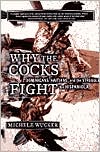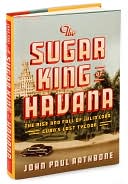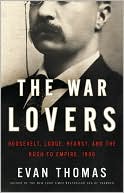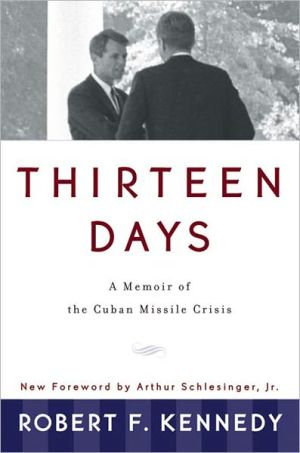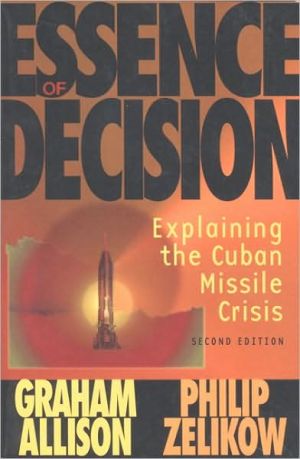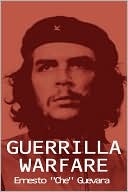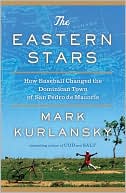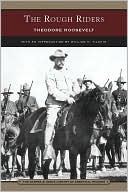Why the Cocks Fight: Dominicans, Haitians, and the Struggle for Hispaniola
Like two roosters in a fighting arena, Haiti and the Dominican Republic are encircled by barriers of geography and poverty. They co-inhabit the Caribbean island of Hispaniola, but their histories are as deeply divided as their cultures: one French-speaking and black, one Spanish-speaking and mulatto. Yet, despite their antagonism, the two countries share a national symbol in the rooster—and a fundamental activity and favorite sport in the cockfight. In this book, Michele Wucker asks: "If the...
Search in google:
Like two roosters in a fighting arena, Haiti and the Dominican Republic are encircled by barriers of geography and poverty. They co-inhabit the Caribbean island of Hispaniola, but their histories are as deeply divided as their cultures: one French-speaking and black, one Spanish-speaking and mulatto. Yet, despite their antagonism, the two countries share a national symbol in the rooster—and a fundamental activity and favorite sport in the cockfight. In this book, Michele Wucker asks: "If the symbols that dominate a culture accurately express a nation's character, what kind of a country draws so heavily on images of cockfighting and roosters, birds bred to be aggressive? What does it mean when not one but two countries that are neighbors choose these symbols? Why do the cocks fight, and why do humans watch and glorify them?"Wucker studies the cockfight ritual in considerable detail, focusing as much on the customs and histories of these two nations as on their contemporary lifestyles and politics. Her well-cited and comprehensive volume also explores the relations of each nation toward the United States, which twice invaded both Haiti (in 1915 and 1994) and the Dominican Republic (in 1916 and 1965) during the twentieth century. Just as the owners of gamecocks contrive battles between their birds as a way of playing out human conflicts, Wucker argues, Haitian and Dominican leaders often stir up nationalist disputes and exaggerate their cultural and racial differences as a way of deflecting other kinds of turmoil. Thus Why the Cocks Fight highlights the factors in Caribbean history that still affect Hispaniola today, including the often contradictory policies of the U.S. Booknews Explores the reasons for the perpetual conflict between the two nations--one black and French-speaking, the other mulatto and Spanish-speaking--that share the Caribbean island. Portrays leaders of both nations stirring up hostilities for their own ends, economic exploitation, massacres, and other events and conditions. Also looks at how the conflict continues among the communities in the US and at regional forces that influence the situation. Annotation c. by Book News, Inc., Portland, Or.
PrefaceAcknowledgmentsAuthor's NoteMap of Hispaniola1Roosters32The Massacre River273The Land Columbus Loved Best604Life on the Batey935Bitter Sugar1156The Cockfight1417The Old Man1708Across the Water1999The Other Side230Glossary253Bibliography261Index275
\ From the Publisher"A complex exploration of the cultural divide between Haiti and the Dominican Republic. Wucker . . . weaves together five centuries of tragic conflict with a subtle picture of the island today."—Patrick Markee, The New York Times Book Review \ "A richly textured social history of Hispaniola . . . . A powerful cultural analysis."—Kirkus Reviews\ "Impeccably researched history made current and more meaningful by first rate reporting."—Barbara Fischkin, author of Muddy Cup: A Dominican Family Comes of Age in a New America\ "A delightful yet disturbingly relevant book . . . The economic, political and geographical struggles vividly occurring on Hispaniola are a microcosm of what happens all over the world."—Michael Hopkins, Milwaukee Journal Sentinel\ "Wucker peels away layers of history and culture, revealing aspects of Dominican and Haitian culture few have described so clearly. Well crafted, lucidly told, and full of insight.."—Rob Ruck, Pittsburgh Post-Gazette\ "A rich cultural history."—Ken Moore, Naples Daily News\ \ \ \ \ \ BooknewsExplores the reasons for the perpetual conflict between the two nations--one black and French-speaking, the other mulatto and Spanish-speaking--that share the Caribbean island. Portrays leaders of both nations stirring up hostilities for their own ends, economic exploitation, massacres, and other events and conditions. Also looks at how the conflict continues among the communities in the US and at regional forces that influence the situation. Annotation c. by Book News, Inc., Portland, Or.\ \ \ Patrick Markee...[A] complex exploration of the cultural divide between Haiti and the Dominical Republic....[W]eaves together five centuries of tragic conflict with a subtle picture of the island [of Hispaniola] today....The book's closing scene is...a glimpse of the future...when...Hispaniola's history unfolds in a more hopeful way.\ — The New York Times Book Review\ \ \ \ \ Kirkus ReviewsWucker's first book is a richly textured social history of Hispaniola. Wucker, a freelance writer specializing in Caribbean affairs, unveils the seemingly chaotic yet ritualistic world of the Dominicans and Haitians. Her approach is historical but not chronological, moving back and forth from the time of Columbus to the 20th century and through the intervening years to emphasize recurring themes rather than a linear story. In the process, we move from one strongman and atrocity to another, e.g., conquering Spaniards complain about the noisiness of natives when they are punished by being roasted alive; Trujillo massacres at least 15,000 Haitians residing within the Dominican Republic in 1937; and the Duvaliers arrogantly loot their own country, the poorest in the Western Hemisphere. Prejudices between Dominicans and Haitians, extreme differences in wealth, and a history of heavy-handed foreign intervention make Hispaniola a powder keg, yet the definitive explosion never occurs. For Wucker the explanation lies more in space than time; two nations share one island in a perpetual turf war paralleling the popular pastime of its residents, the cockfight. She argues that the cockfight is a symbol "of both division and community," a combat which occurs within strict rules accepted by all as social norms. We are simultaneously horrified and fascinated because it presents an ugliness within ourselves, the natural aggression that emerges when one's territory is threatened. For humans the contested space is more complex than the closed ring of the cocks-"it can be physical, economic, emotional, or cultural"-and the island's geographic limits intensify the struggle. While the metaphor is suggestive,however, the cockfight is designed to pit equal combatants against each other, and among humans equality is in short supply on Hispaniola. Perhaps this explains why the victorious cock brings glory to his owner, yet the victors in the human competition have hardly been inspiring. A powerful cultural analysis. \ \
